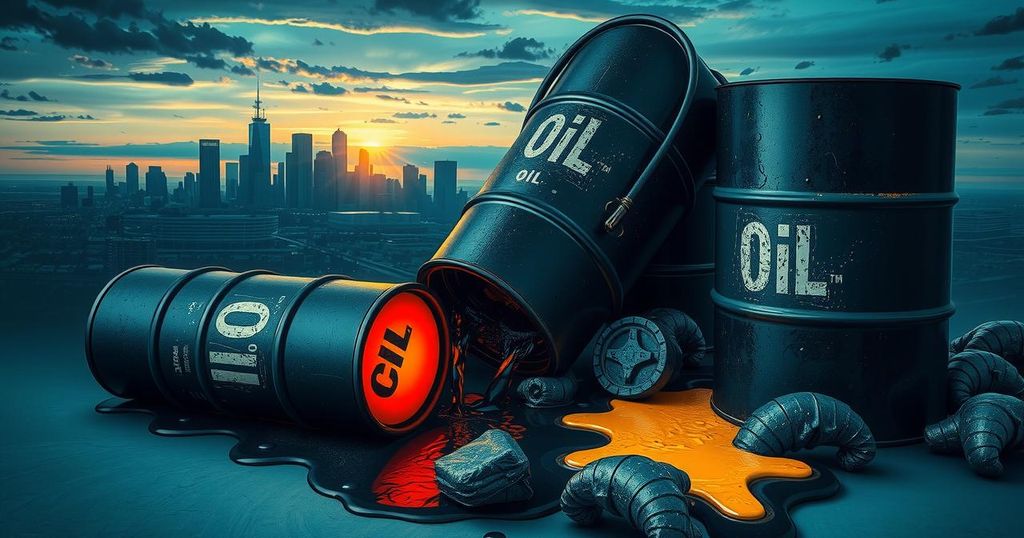The Trump administration has revoked permissions for Chevron, Repsol, and other foreign companies to export Venezuelan oil, expanding sanctions on Venezuela. This policy aims to challenge President Nicolás Maduro’s governance, particularly in light of allegations of election fraud and the mass exodus of Venezuelans. Trump cites national security concerns while pursuing a confrontational foreign policy stance on Venezuela.
The Trump administration has escalated economic pressures on the regime of Venezuelan President Nicolás Maduro by revoking the permissions for Western companies, including Chevron and Repsol, to export crude oil from Venezuela. Recently, Trump instructed foreign partners of the state oil company, PDVSA, to cease all dealings, thereby expanding an earlier ban initially placed on American firms to include non-American companies such as Italy’s Eni, France’s Maurel & Prom, and India’s Reliance Industries. This action is part of Trump’s broader economic sanctions strategy aimed at challenging the Venezuelan regime, especially following new tariffs imposed on buyers of Venezuelan oil and gas by the U.S.
Concerns regarding Maduro’s governance, including allegations of election fraud during his recent inauguration and a large exodus of Venezuelans, underscore the rationale behind Trump’s firm stance. Estimates suggest that over 7.7 million Venezuelans have fled the country during Maduro’s presidency, many seeking refuge in the United States. Trump has leveraged this situation to support strong immigration policies, asserting on his Truth Social platform that Venezuela has allegedly sent dangerous individuals to the United States, a claim he has made without definitive evidence.
This latest measure against Venezuelan oil exportation exemplifies Trump’s confrontational approach to diplomacy, reflecting his trend of escalating trade disputes. Despite some softening on other threats, the position against Venezuela remains a definitive aspect of his administration’s foreign policy.
In conclusion, President Trump’s revocation of permissions for Western companies to export crude oil from Venezuela marks a significant intensification of U.S. economic pressure on the Maduro regime. The broadening of the ban to non-U.S. firms signifies a strategic shift aimed at reinforcing sanctions, amidst escalating diplomatic conflicts regarding Venezuela’s governance and increasing concerns about immigration. This move encapsulates Trump’s robust approach to foreign policy and economic sanctions as he seeks to address concerns over Maduro’s leadership and the implications for U.S. national security.
Original Source: en.as.com




